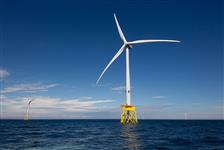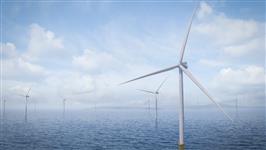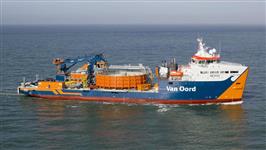
U.S. Offshore Wind Projects Seek Eased Subsidy Rules to Ensure Progress
Posted 06/09/2023 14:41
Several U.S. offshore wind projects, including those by Equinor, Engie, and EDP Renewables, central to President Joe Biden's climate change agenda, are at risk of not moving forward unless the administration revises the requirements for subsidies in the year-old Inflation Reduction Act (IRA). These project developers, along with trade groups representing the offshore wind sector, are urging officials to modify the requirements, warning of potential job losses and lost investments if the changes aren't made.
The issue revolves around a requirement in the IRA that clean energy projects seeking bonus tax incentives must use American-made equipment and be located in low-income communities. While these provisions align with President Biden's goals of bolstering U.S. manufacturing jobs through clean energy investments and directing benefits to disadvantaged areas, they pose challenges for offshore wind projects due to their reliance on foreign equipment and materials and their coastal locations.
For instance, U.S. Treasury rules stipulate that offshore turbine towers must be made entirely of domestic steel to qualify for the domestic content credit. The first factory capable of producing such towers is scheduled to open in 2025 but has experienced delays and cost overruns.
Developers argue that these requirements, especially the domestic content credit, are unrealistic for offshore wind projects and could hinder their development. Currently, the offshore wind industry has less stringent requirements for claiming the bonus compared to other sectors, with domestic content accounting for just 20% of costs, as opposed to 40% for solar and onshore wind, according to Treasury rules.
Some developers are advocating for an expansion of the "energy communities" definition to include port infrastructure locations, which can generate jobs and economic benefits in a wider area.
The U.S. Treasury has emphasized its commitment to implementing the IRA's subsidies in line with the law's goals, and it has already driven billions of dollars in new investments. Labor unions, an influential group for President Biden, have supported strict requirements for the domestic content bonus.
However, the offshore wind industry believes that relaxing the requirements is crucial, not only for project success but also for supporting domestic industries and jobs. The industry is pivotal to the administration's goal of deploying 30 gigawatts of offshore wind along U.S. coastlines by 2030, creating thousands of union jobs in manufacturing, shipbuilding, and construction.









